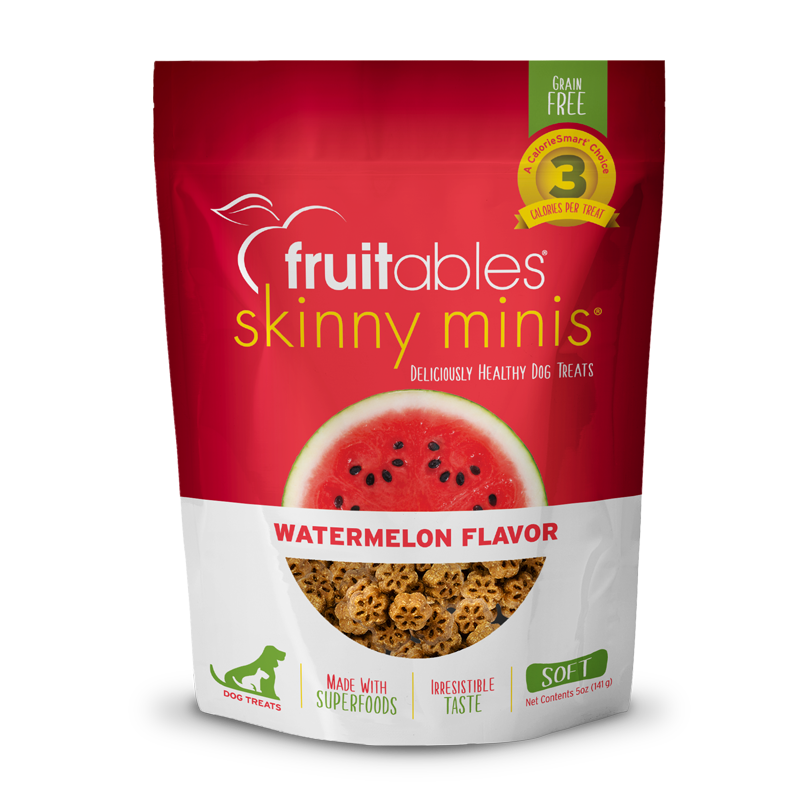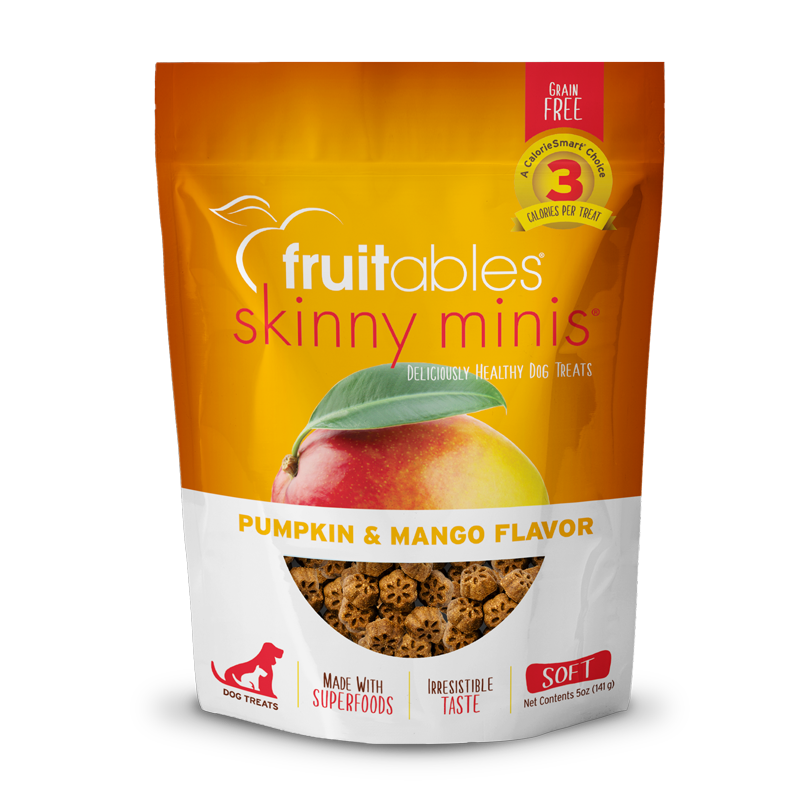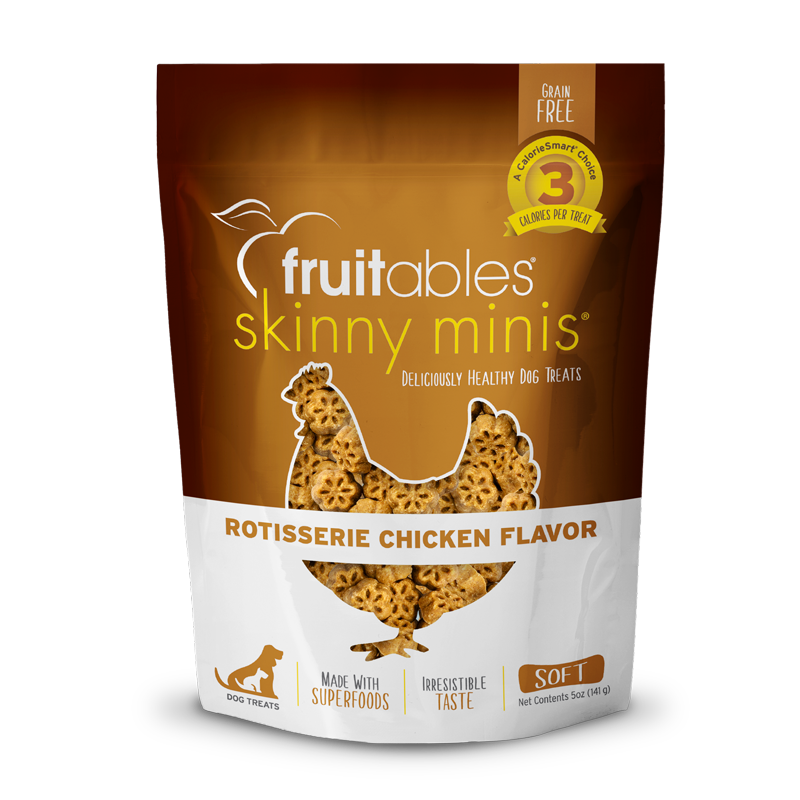The Fun Side of Healthy™
Our Dog & Cat Blog
What-ermelon? Can Dogs Eat Watermelon?
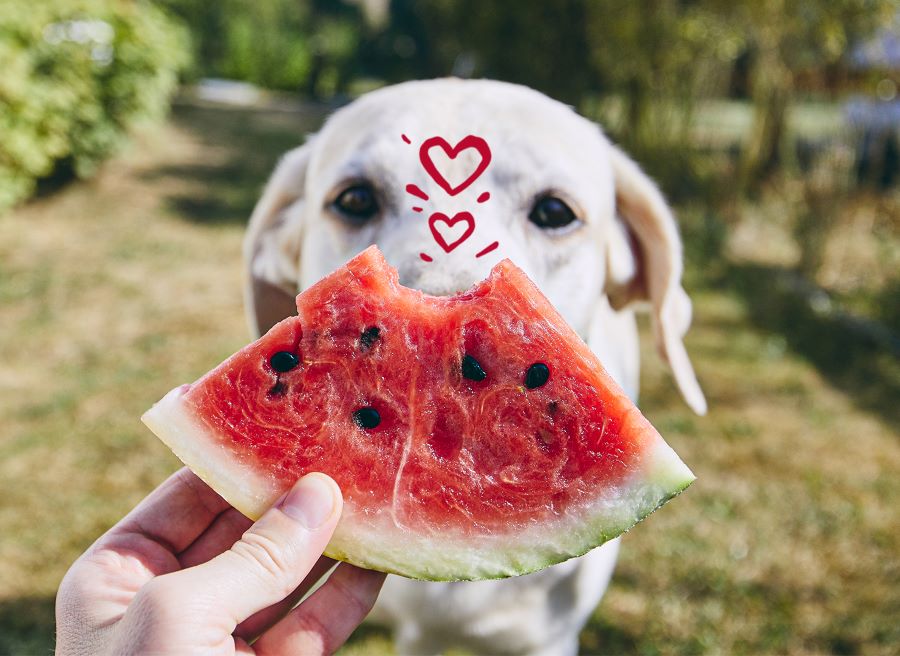
Splash into summer with this refreshing and hydrating snack for dogs.
The Joyful Tale of Dogs and Watermelons
As a loving dog parent, the bond between you and your pet is unbreakable. Their unbridled joy, loyalty, and the way their eyes light up at the simplest pleasures of life remind us to cherish the little moments.
On warm, sunny days, there's nothing quite like biting into a slice of cool, refreshing watermelon. Have you ever thought about sharing that sweet snack with your pup? You might now be wondering, "Can dogs have watermelon?" And if so, how much and what are the benefits? Let’s dive in.
Is it safe for dogs to eat watermelon?
We’re happy to share that the answer is a jubilant "Yes!" Watermelon, with its lush, juicy sweetness, is not only safe for dogs but also a hydrating treat - perfect for those scorching summer days.
However, while dogs can indeed enjoy watermelon, it's crucial to serve it properly. The seeds must be removed to prevent any risk of intestinal blockage, and the rind, while not toxic, is hard and difficult for dogs to digest.
Can dogs eat watermelon rind?
While the sweet pink flesh of the watermelon is A-OK for dogs, the rind is a different story. A watermelon rind is the tough, green outer shell of the melon, and unlike the fruit is NOT SAFE for dogs. The rind, being much tougher and fibrous compared to the soft, water-rich fruit inside, can pose a challenge for dogs to digest.
This tough exterior could lead to gastrointestinal upset or even pose a choking hazard, especially for smaller dogs or those that tend to gulp their food without chewing properly. So, while sharing slices of this sweet, hydrating treat with your furry friend on a hot day, make sure to remove any pieces of the rind AND SEEDS to keep their tails wagging happily and healthily.
Is watermelon easy to digest for dogs?
For the most part, watermelon is gentle on a dog's digestive system, thanks to its high water content and soft flesh. However, every dog is an individual, and what agrees with one may not sit well with another. Keeping an eye on your dog after introducing watermelon for the first time is wise.
And remember, the rind is a no-go zone – it's tough and can lead to digestive upset.
How much watermelon can a dog eat?
Please remember when sharing any fruit, veggie or generally safe human food to dogs - moderation is always key. Dogs are omnivores, which means they can enjoy fruits and veggies in small quantities.
Additionally, although watermelon is low in calories, it's high in sugar. A few small, bite-sized pieces are enough to satisfy their curiosity and taste buds without overwhelming their digestive system. It's essential to introduce any new food gradually (even snacks!) to avoid any tummy troubles.
Why does my dog love watermelon?
Have you ever noticed the gleam in your dog's eyes as they take a bite of watermelon? There's a simple joy in the texture and the juiciness, offering both a tasty treat and a way to cool down. Watermelon's sweetness is a delightful bonus for their taste buds, making it a sought-after snack. It's a shared moment of happiness, a slice of summer, that we can give our dogs.
Benefits of Watermelon for Dogs
Watermelon isn't just about taste; it's a treasure trove of hydration and nutrients. This fruit is packed with vitamins A, B6, and C, which support healthy skin, coat, and immune system. Its high water content helps keep dogs hydrated, making it an excellent snack for hot days. Plus, watermelon is a source of lycopene, an antioxidant that has been linked to a reduced risk of certain diseases in dogs and humans! Talk about "doggie and me" fun!
Watermelon is more than just a hydrating summer snack; it's a vibrant, nutrient-rich treat that offers a plethora of health benefits for dogs. Here's a closer look at the advantages this delicious fruit brings to our furry friends:
- Hydration Hero. Watermelon is made up of about 92% water, making it an excellent source of hydration, especially during the hot summer months. Keeping dogs well-hydrated is crucial for their overall health, aiding in digestion, nutrient absorption, and temperature regulation. A few juicy bites of watermelon can be a fun and tasty way to help maintain their fluid intake.
- Nutrient Powerhouse. Watermelon is not only refreshing but also packed with essential vitamins and minerals that contribute to a dog's health and wellbeing.
- Vitamin A. Vital for maintaining healthy vision, skin, and coat, Vitamin A in watermelon helps keep your dog looking and feeling their best.
- Vitamin B6: This important vitamin plays a crucial role in glucose generation, red blood cell function, nervous system health, and hormone regulation in dogs.
- Vitamin C: Although dogs naturally produce Vitamin C in their bodies, the extra boost from watermelon can help support the immune system and act as an antioxidant, combating inflammation and aging. Vitamin C from watermelon is excreted in the urine, so you don’t have to worry about too much of a good thing.
- Potassium: Essential for proper muscle and nerve function, potassium in watermelon contributes to heart health and helps regulate fluid balances in your dog's body
- Low-Calorie Treat. Watermelon is a low-calorie treat, making it a great option for dogs on a diet or those prone to obesity. It provides a satisfying sweetness and crunch without the added calories, helping to keep your pup lean and healthy.
- Digestive Aid. The high water and fiber content in watermelon can help aid digestion in dogs, promoting healthy bowel movements and preventing constipation. It's a gentle and natural way to keep your dog's digestive system running smoothly.
- Antioxidant Rich. Watermelon contains antioxidants such as lycopene and beta-carotene. Lycopene has been linked to reduced risk of certain diseases and helps protect cells from damage, while beta-carotene supports eye health and immunity.
Incorporating watermelon into your dog's diet, in moderation, can be a delightful and nutritious way to enhance their health and wellbeing. It's a testament to the simple joys that nature provides, offering a burst of flavor and a myriad of health benefits. So next time you're enjoying a slice of watermelon, remember that your furry friend can also savor this juicy delight, reaping both the hydrating and nutritional rewards.
Is Watermelon Good for Dogs?
So, "Is watermelon good for dogs?" Absolutely, when given with love and care. It's a joyous treat that brings a splash of cool sensation and a burst of sweet flavor into their world. Just remember to remove the seeds and skip the rind to keep those wagging tails happy and healthy.
Watermelon Dog Treats
Your friends at Fruitables love creating fun and unique dog treat flavor mashups. And they made one especially for those hot spring and summer months - introducing Fruitables Skinny Minis Watermelon dog treats! These small treats are perfect training treats for puppy season.
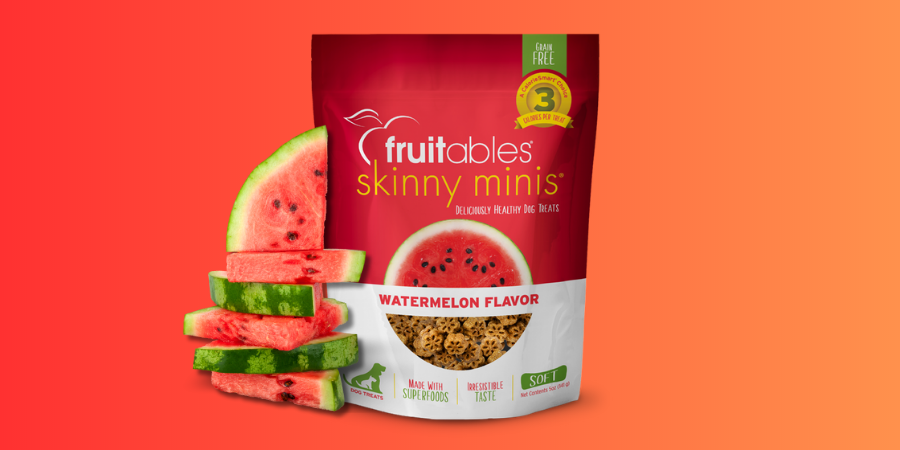
Will You Enjoy Watermelon with Your Best Friend?
As we share these moments of simple pleasures, like watching our dogs delight in the taste of watermelon, we're reminded of the beauty in life's little joys. It's these shared experiences, these small acts of love, that deepen the bond we share with our canine family members, making every day deliciously healthy.
The Fun Side of Healthy™
Our Dog & Cat Blog
